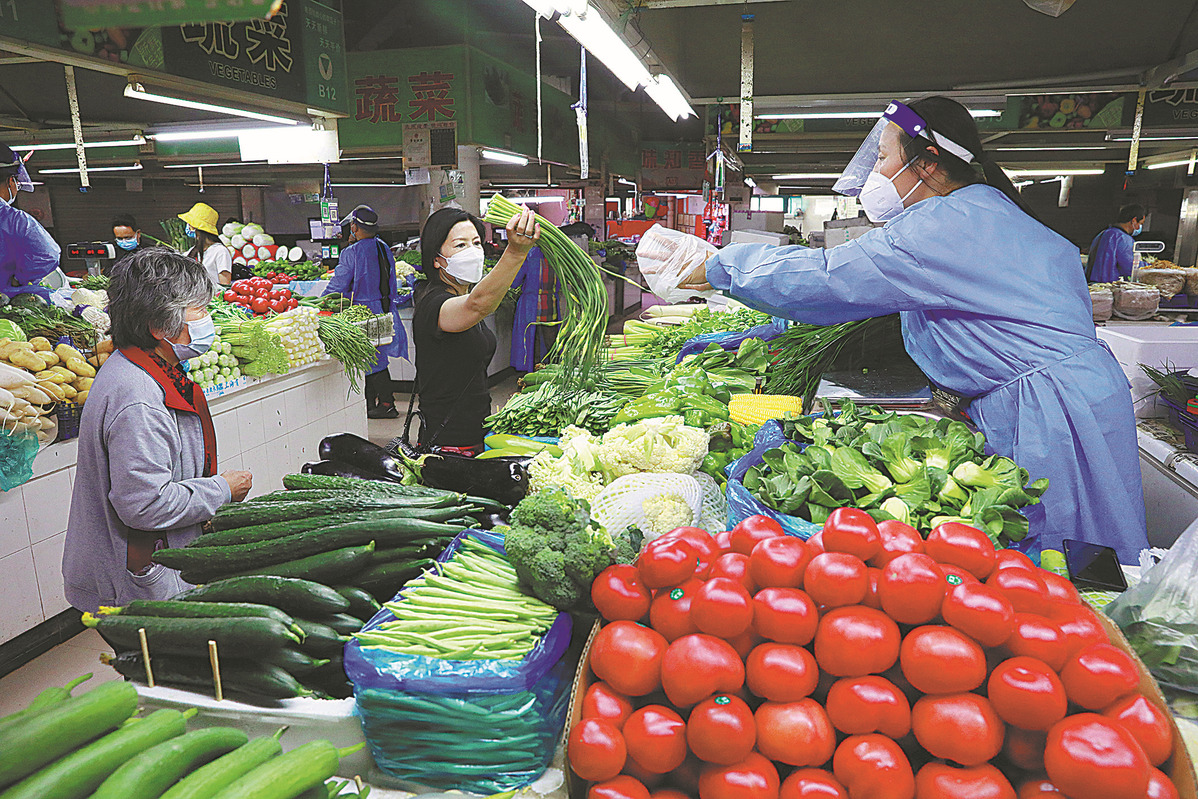
Shanghai will progressively resume public transportation services beginning on Sunday as the COVID-19 situation continues to stabilize, while the city's postal and express delivery service is expected to resume full operation by mid-June, officials said at a news briefing on Thursday.

Zhang Wei, the city's vice-mayor, said four of the city's metro lines-Lines 3, 6, 10 and 16-and 273 bus routes that form a network covering the urban areas and provide access to the city's airports, railway stations, major hospitals and commercial districts, will resume operations first.
"All passengers taking public transport must show a negative nucleic acid test result from within 48 hours. Venue QR codes and smart inspection devices will be deployed on the buses and in metro stations," Zhang said.
"Also, a novel QR code system that integrates payment and health code verification will be established so that passengers only need to have one code scanned when getting on public transport," he added.
Yu Fulin, director of the Shanghai Transport Commission, explained that apart from a valid nucleic acid test result, passengers taking public transport must also wear masks properly throughout the journey, have a green health code and their temperatures must be below 37.3 degrees.
The resumption plan for private cars and taxis is being mulled, according to the traffic authority.
The number of trains leaving from and arriving at Shanghai Hongqiao and Shanghai railway stations will be increased gradually as well.
All individuals leaving Shanghai must have a negative nucleic acid test result from within 48 hours as well as a negative antigen test result 24 hours prior to departure.
At the same time, the city is expected to have its postal and express delivery companies realize full resumption of personal delivery services next month, said Feng Lihu, director of Shanghai Postal Administration.
The daily average parcel collection and delivery volume in Shanghai has reached more than 4.6 million, one-fifth the city's normal level before it adopted citywide epidemic control measures in April. Altogether 20 sorting centers of both domestic and foreign enterprises for postal and express delivery have resumed operations in the city, Feng said.
Another eight sorting centers will resume operations soon, meaning that one-third of the city's sorting centers will be in service while abiding by strict epidemic prevention and control protocols.
Moreover, 580 of their branches and outlets have resumed business with the number of front-line couriers and workers returning to work rising to nearly 20,000.
"We forecast that by early and mid-June, all sorting and processing centers and branches of postal and express delivery companies will resume operations," said Feng.
Shanghai registered 82 COVID-19 confirmed cases and 637 asymptomatic infections on Wednesday. All infections were found inside quarantine and locked-down populations.
The number of residents in locked-down zones in the city, which has a population of 25 million, has continued to shrink to 710,000.
As of Wednesday, there were 203 severe COVID-19 cases and another 60 in critical condition in Shanghai.
The city reported one COVID-19 fatality on Wednesday. The person who died was aged 64 and suffered from serious underlying diseases that contributed to his death, said Zhao Dandan, deputy director of the Shanghai Health Commission.